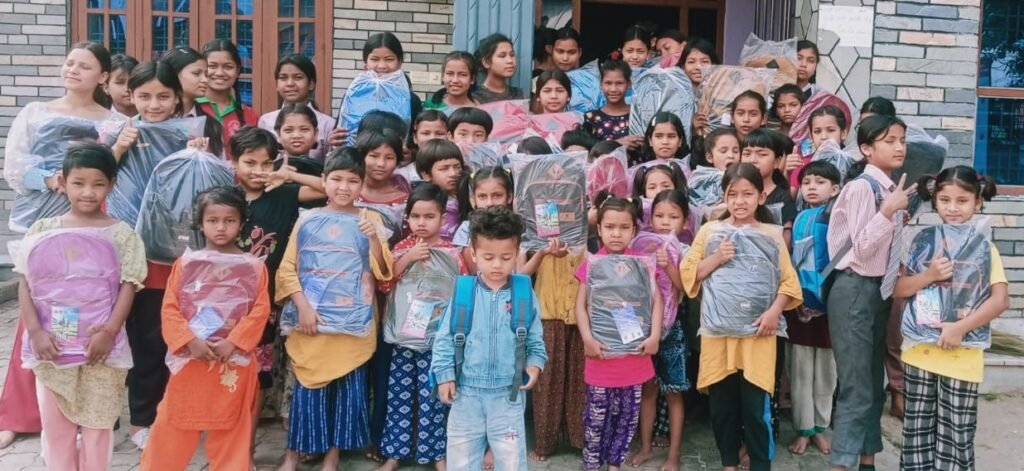WORKING APPROACH
BSMN has adopted the following approaches to the national agenda of federalism and development, outlined in the new Constitution of Nepal 2072, National Law 2074, Sustainable Development Goal (SDG), Country Development Plan (CDP), Fifteenth National Plan, Education for All (EFA), other National and International instruments and put into action in the BSMN Strategic Plan /Business Plan coupled with stakeholder’s needs and aspirations for social, political and economic changes. These are as follows:
A framework for approaching human and institutional capacity poverty demands the following:
- Human Capability development (education, health, nutrition, clean water and shelter, psychosocial health, core elements of well-being as well as crucial means for improving livelihoods);
- Economic capability development (ability to earn income, to consume and to have assets, which are all keys to food security, material well-being, and social status);
- Political capability development (human rights, political freedom, a voice and some influence over public policies and political priorities. Powerlessness aggravate other dimensions of poverty since the politically weak neither have the voice in policy reforms nor secure access to resources required to rise out of poverty.
- Socio-cultural capability development to participate as valued members of a community (social status, dignity and other conditions for belonging to a society). Social isolation is the main meaning of poverty for people in many local societies.
- Protective capability development to withstand economic and external shocks (insecurity ad vulnerability due to seasonal variations, natural disaster, economic crisis and violence conflicts).


For the institutional capability development of the Community Support Group (C.S.G.) the following inputs are required.
- Strengthening and building capacity in CSG for social, political and economic initiatives.
- Creating political space for the activities of the poor and disadvantaged.
- Supporting/mobilizing poor people individually and collectively.
- Engaging in issue-based advocacy and lobbying.
- Providing linkages from the local to national and international level.
- Building alliances between different actors of the civil society.
- Getting involvement in border social movements.
In order to derive value added benefits from the federal structure of Nepal and the above mentioned approach has to be further elaborated in the following ways:
- Capacity Development of the community and their organizations for achieving sustainable results; where the community people are empowered to take over the developed functions, resources and services and ultimately the control their own destiny.
- Partnership development to encourage partnership process among the key development partner; the communities and their support organizations (community based organizations, Local level Government Structure (Urban/Rural Municipalities, Sub/Metropolitan), International non-governmental organizations and donor agencies who share the same common vision of achieving fruits of democracy, decentralization and people centered development; and the line agencies of the government willing to devolve resources and services. The focus has to be on increasing community access to and control over resources and services while BSMN plays the facilitating role.
- Proportional participation of disadvantaged groups and their organization; in influencing the policy in favor of Province, Village Municipality, Municipality, Metropolitan; agenda setting for the pro-poor development process; rights-based participation in the development process including policy formulation; as well as resource allocation, monitoring and evolution of community based projects. The partner organizations help in creating and enabling environment for the community to take over control of devolved resources and services. The key focus will have to be on preparation of periodic plans (of the local self-government) and annual plan of operation in a participatory manner. The users’ groups are put in the driving seat so that they manage and sustain the development projects in transparent and efficient manner.
- Lobby and advocacy for the protection and promotion of basic human rights, good governance, and faster devolution of the resources and services. Strong advocacy network is required to influence politics, political institutions and beurocracy to address issues of the stateless people living in poverty and poor dignity. Advocacy about resolving the issue of exclusion and child labors is required. Monitoring of the cases of violation of the child rights, women rights, political and economic rights of marginalize, child workers and excluded people. Right to food, health and education must be guaranteed it is also important to advocate good governance by focusing more and more on addressing the transparency and accountability issues to make the local government more accountable to the people and more transparent in its favor.
- Information choices and decisions by the community people, their organizations; They must be able to make informed choices and decision to improve the efficient use of available resources and services to improve the quality of the decision-making process at all levels. In addition to bridging the information (knowledge) gaps, it is equally important to generate and utilize new information and technical skills. The provision of NGOs will provide the input required to create an information-based society to enjoy a genuine status of human and institutional development and enlightenment.
- Development of community entrepreneurship to create new institutions and services centers to help the communities and their organizations to take control of the devolved resources and services and ultimately take control of their destiny into their own hands; social mobilization is an effective instrument for the creation of social and economic capital, prerequisites to community entrepreneurship leading to the ultimate destination of the process of power devolution.
- Research and Documentation: Research and documentation is essential part of the development sectors; it needs to update frequently. For the developing new planning for action and prepare resource information relevant, latest and accurate information is required and it comes from research.

Welcome to Badi Sarokar Manch Nepal (BSMN), a beacon of hope and change in the heart of Karnali Province.